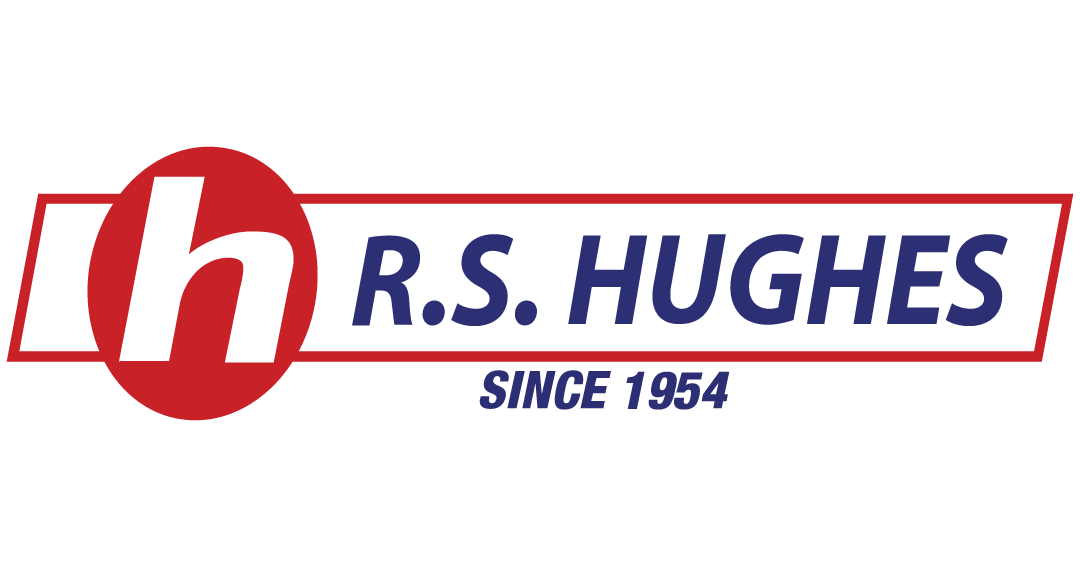
June 17, 2025
When R.S. Hughes set out to improve online product recommendations, they didn’t expect it would lead to a full transformation of their sales strategy. But that’s exactly what happened.
In 2020, the California-based distributor set out to improve how its eCommerce site recommended products to buyers. But the team quickly realized that traditional recommendation engines couldn’t deliver the depth of insights needed in B2B distribution.
“We needed relevant recommendations,” said Mike Page, R.S. Hughes’ Chief Marketing Officer and Chief Technology Officer. “As we learn about you and your behavior on the website as a regular customer, we now understand your order pattern and your reorder behavior.”
But with 60,000 customers and more than 900,000 SKUs, behavior-based suggestions weren’t cutting it. It was difficult to come up with meaningful product recommendations across such a wide and complex catalog.
Page was eventually introduced to Proton, an AI-powered sales platform built specifically for distributors. While other eCommerce recommendation solutions relied on just web browsing behavior, Proton’s model was different.
“The Proton.ai solution uses AI to digest a massive amount of data and make sense of it,” Page said. “The products are just one component. The data also looks at the type of customer, the location of the customer, what we know about similar customers. It considers many different data points that would be difficult to analyze without machine learning.”
Page agreed to feed data from R.S. Hughes’ Infor SX.e ERP system into Proton for a 90-day pilot. A dozen business development reps were asked to use the system’s recommendations in their daily customer calls.
The results were stronger than expected.
“We got so much more out of it than we expected, because it helped the new salespeople get up to speed much faster,” said Page.
Veterans also benefited, moving faster and making better decisions based on live data. The software gave each rep a personalized daily game plan of who to call, and what to talk about.
“The data tells you, here’s who you need to talk to today. Here’s the content you need to talk to them about,” Page said.
Before launching the pilot, Proton had one request: give us as much data as possible.
“So we gave them millions and millions of lines of transactional data, customer data,” said Page. “I think we might have plugged in 10 years of history, including customers who buy from us and those who have stopped buying. It’s a very powerful system.”
The AI now powers sales activity across R.S. Hughes’ team of 175 inside sales reps, who collectively serve around 10,000 customers. It helps them prioritize outreach and tailor conversations to each customer’s purchase history and behavior.
For example, if a customer regularly purchases safety glasses but hasn’t placed an order in a while, the system will suggest that it’s time to contact that customer to ask if they want to reorder today.
“Additionally, because we’ve learned about that particular customer, we can learn about the purchasing history of similar customers and the engine will provide some relevant guidance,” Page explained.
Before Proton, much of the rep's time went into building their own call plans and figuring out what to prioritize. Now, the system cuts straight to the next best action.
“It’s the stuff we historically built from our own database, but now we’re moving right into relevant action steps and doing so much quicker,” said Page.
Page noted that he’d never worked on a project with such a fast ROI.
“The ROI on the e-commerce piece alone was immediate. We’ve seen well over seven figures in attributed revenue and hundreds of thousands of clicks for attribution to engage on those recommendations,” he said. “This was a tech project that was implemented on time and on budget, with the fastest return on investment I’ve ever been engaged with.”
Since launching their website in 2014, R.S. Hughes has grown eCommerce to account for about 25% of its more than $460M in annual revenue. Proton has played a key role in that acceleration.
The initial success with inside reps led R.S. Hughes to expand the rollout across the organization. Now, outside sales reps will have access to the system from a desktop, tablet, or mobile.
“The relationship with Proton has turned into a significant part of our growth engine in the company, and not just in e-commerce. We’ve expanded into our inside sales group, and we’re just about now ready to turn it all over to our outside sales group,” said Page.
And it’s not just about product recommendations, it’s becoming the center of their customer engagement strategy.
“The Proton.ai engine is now going to be the heart and soul of our client engagement on a reactive sense, in a recommendation sense, and affect our customer relationship management behavior,” Page said.
Beyond individual sales activities, R.S. Hughes has also used Proton to guide promotional efforts.
“We’re taking many data points about customers and behaviors and product purchasing patterns, and correlating those together with the AI engine to provide the due-to-reorder product recommendations that go together, and then we have an opportunity to add campaign or promotional direction into that too,” said Page.
And over time, the system only gets smarter.
“Over time, the engine continues to digest data and learn and grow, so it keeps getting better all the time,” he said.
This case study is adapted from an article that originally appeared in the March/April 2022 issue of Industrial Supply magazine.